Features
STANDING UP FOR GAZA IN NEW YORK CITY
Not for the Squeamish
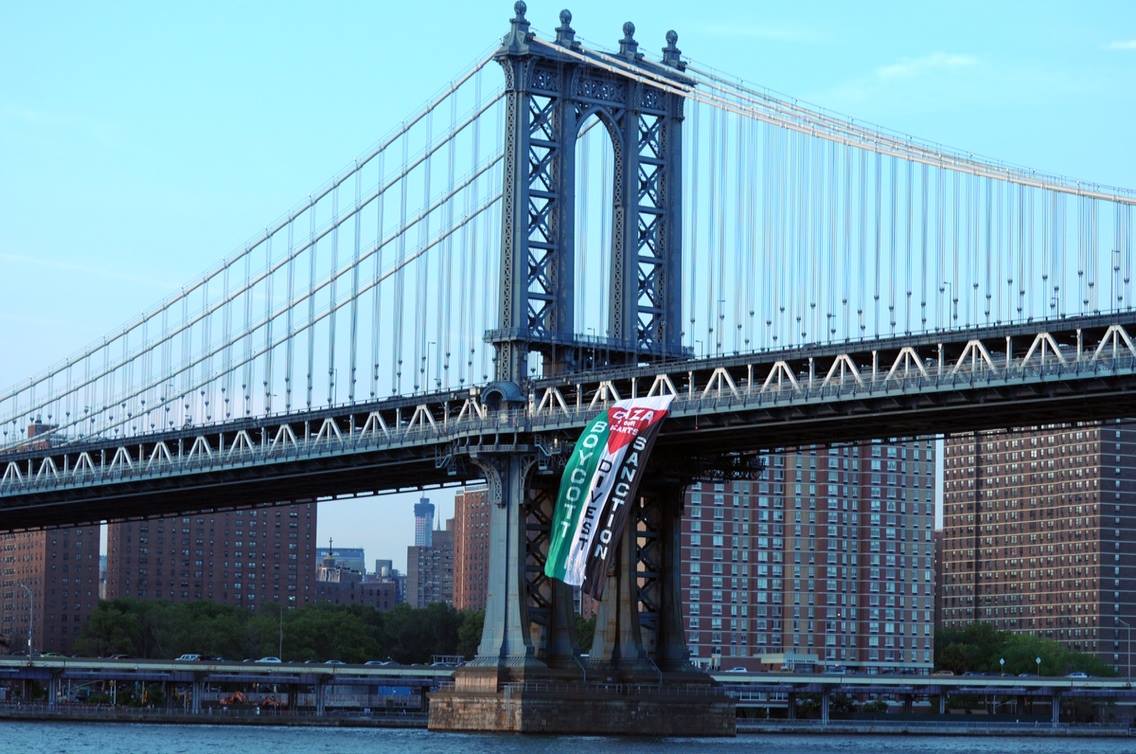
by Bill Weinberg, The Villager
On July 28, the same day that some 10,000 joined a "New York Stands with Israel" rally at the UN, my frustration was compounded by a demoralizing encounter outside St. Mark's Church. I was biking down Second Ave., and saw the "FREE PALESTINE" banner outside the church, and stopped to check it out. To my disappointment (but not, alas, surprise) it was one of the highly problematic groups that have mobilized around that issue in New York City. In this case, "If Americans Knew."
It is obvious from its name that this is basically a right-wing nationalist formation with (at least) an anti-Semitic streak. Right, I think every time I see their name, "Americans" are pure and righteous (never mind Gitmo and Abu Ghraib and "shock & awe"), but are being hoodwinked into supporting atrocities by those wily Jews... I nonetheless took one of their flyers just to see what it said, and was dismayed to find it was a big quote from Gilad Atzmon, a practically open Jew-hater (notwithstanding his own Jewish origins), with a website full of Holocaust revisionism, claims that Hitler's anti-Semitism was "in direct response to the declaration of war on Germany by the worldwide Jewish leadership," and other such gems.
When I told the woman who handed me the flyer I don't like Gilad Atzmon, she smiled smarmily and said, "He's awesome."
And that wave of existential loneliness swept over me yet again... With death raining down on the Gaza Strip, Israel's atrocities must be opposed—urgently, uncompromisingly. But groups like "If Americans Knew" and figures like Gilad Atzmon just play right into the propaganda ploy that any opposition to Israel is anti-Semitism. Their presence on this issue is worse than useless: it is deeply counter-productive.
It has actually been hard to find protests I can join against the aerial terror on Gaza.
SEEING THE WOMEN IN REVOLUTIONARY SYRIA
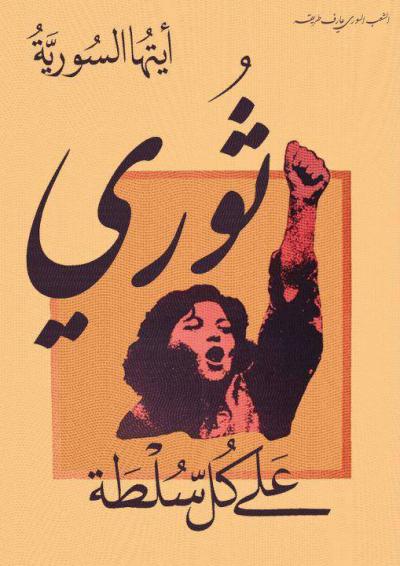
by Razan Ghazzawi, openDemocracy
"They brought us by bus. We were a large group of female and male comrades. I recall that we were shackled, and an increasing sense of fear overwhelmed me about reaching that place, the expected interrogation, from facing Mudar whom I thought was there, and seeing all the comrades. Mixed feelings of fear and anticipation and desire and ... But it all began to disappear en route and as I am approaching the city that I loved and still do, I did not feel the length of the road or the time that had passed by...Damascus was looming in front of us."
—Amira Huweija, member of the Communist Labor Party, from her time in Douma prison between 1987-1991.
This account will try to give an overview of the role of grassroots women in the Syrian uprising in an attempt to highlight angles not widely covered by the mainstream media, in Arabic or internationally. Nor is this well represented in the narratives of the Syrian political opposition abroad. In fact in all these narratives, women are rather systematically excluded from any account of political decision-making regarding this country in such a historic phase. Women and youth have very little representation in the ranks of either the local councils or the Syrian National Coalition. So how is it that women in Syria have played an essential role throughout the phases of the uprising, a role that has shifted over time in response to the increased violence and rapid developments on the ground?
THE NEW PKK
Unleashing Social Revolution in Kurdistan
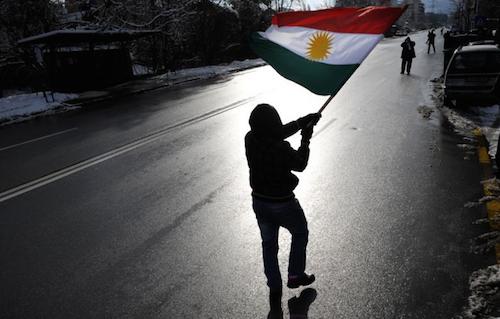
by Rafael Taylor, ROAR Magazine
As the prospect of Kurdish independence becomes ever more imminent, the Kurdistan Workers' Party transforms itself into a force for radical democracy.
Excluded from negotiations and betrayed by the 1923 Treaty of Lausanne after having been promised a state of their own by the World War I allies during the partitioning of the Ottoman Empire, the Kurds are the largest stateless minority in the world. But today, apart from a stubborn Iran, increasingly few obstacles remain to de jure Kurdish independence in northern Iraq. Turkey and Israel have pledged support while Syria and Iraq’s hands are tied by the rapid advances of the Islamic State (formerly ISIS).
With the Kurdish flag flying high over all official buildings and the Peshmerga keeping the Islamists at the gate with the assistance of long overdue US military aid, southern Kurdistan (Iraq) join their comrades in western Kurdistan (Syria) as the second de facto autonomous region of the new Kurdistan. They have already started exporting their own oil and have re-taken oil-rich Kirkuk, they have their own secular, elected parliament and pluralistic society, they have taken their bid for statehood to the UN, and there is nothing the Iraqi government could do—or the US would do without Israeli support—to stop it.
The Kurdish struggle, however, is anything but narrowly nationalistic. In the mountains above Erbil, in the ancient heartland of Kurdistan winding across the borders of Turkey, Iran, Iraq and Syria, a social revolution has been born.
GAZANS FACE STRUGGLE ON WAR CRIMES CLAIMS
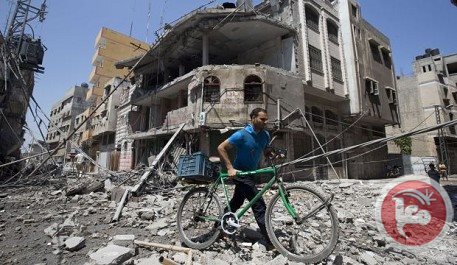
from IRIN
JERUSALEM — Speaking on Aug. 5 after a meeting at the International Criminal Court (ICC) in The Hague, Palestinian foreign minister Riyad al-Malki was unequivocal. "Everything that has happened in the last 28 days is clear evidence of war crimes committed by Israel, amounting to crimes against humanity," he said, referring to the ongoing Israeli assault on Gaza. "There is no difficulty for us to show or build the case. [The] evidence is there… Israel is in clear violation of international law."
His comments echoed those made by senior international figures. Speaking after the bombing of a UN school, UN Secretary-General Ban Ki-moon called the attacks a "gross violation of international humanitarian law," while UN High Commissioner for Human Rights Navi Pillay has said there is a "strong possibility" of war crimes.
According to the latest count from the UN, Israel's Operation Protective Edge against Hamas and other militants in Gaza has claimed the lives of more than 1,800 Palestinians, 72% of whom were civilians. The death toll on the Israeli side is 67: 64 soldiers, two civilians, and one foreign national working in Israel.
Yet while the accusations of abuses against Israel have been loud, proving them will be a lot more challenging. Political, legal and practical limitations, experts say, mean the Palestinians will struggle to use either international or Israeli courts to pursue their claims.
UNDERSTANDING SYRIA'S FOUR-FRONT WAR
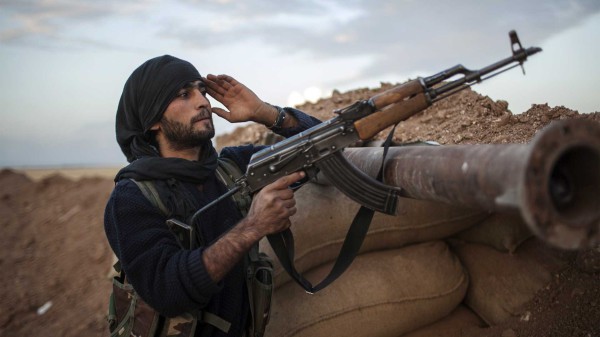
by Christopher Phillips, Middle East Eye
As the world media has been preoccupied with the Gaza conflict, Syria has just had the bloodiest week of its civil war. Some 1,700 were killed in seven days, with a renewed push from Islamic State (IS) accounting for much of the violence.
Confident after its victories in Iraq and deploying newly looted military hardware, IS's sudden charge and the reaction to it in Syria and outside, has tilted the conflict on its axis, challenging various assumptions and shifting dynamics. Increasingly, we can talk about a war being fought on four overlapping fronts by four groupings of actors: the Assad government, IS, the mainstream rebels and the Kurds.
PRACTICING PEACE IN WARTIME
Israelis and Palestinians Who Refuse to Be Enemies
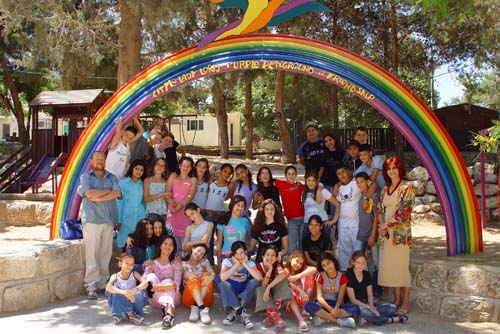
from IRIN
JERUSALEM — The sixty families are determined not to be driven apart by even the most extreme circumstances; the sign pointing to a bomb shelter is written in three languages—English, Arabic and Hebrew. Equidistant from Tel Aviv and Jerusalem on a hilltop near the border with the West Bank, residents of the village called Neve Shalom and Wahat al-Salam (Oasis of Peace in Hebrew and Arabic) choose to live side by side in Israel's only truly mixed community.
The 30 Israeli Jewish and 30 Palestinian families have resolved not to let the latest hostilities turn neighbor against neighbor. "These times of heightened violence actually really bring the village together," said Bob Mark, a Jewish Israeli who taught at Neve Shalom's primary school for 23 years. "You'll find the village demonstrating together," he added. While residents have differing views on the solution to the country's woes they all agree that the killing must stop.
SELECTIVE INTERNATIONALISM
Gaza and Syria Reveal an Activist Disorder
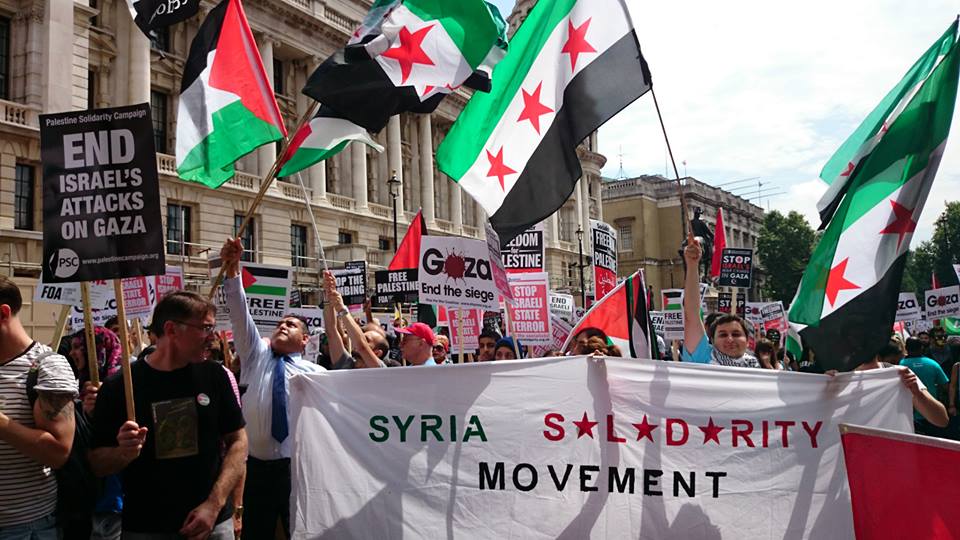
by Nott George Sabra
Some 80,000 people rallied in London last weekend to support the Palestinians of the Gaza Strip whom Israeli forces are slaughtering daily by the dozens. This commendable display of internationalism—defined as unconditional solidarity with the oppressed and the exploited without regard to borders, colors, or creeds—was repeated all over the US and Europe as thousands turned out at similar marches, even defying a government ban in Paris. Bringing this street sentiment into the halls of power, Chile's parliament voted to suspend trade talks with Israel.
This vigorous internationalist grassroots response to Israel's murderous campaign is exactly what revolutionary Syrians called for from activists abroad since 2011 in response to the Syrian regime's adoption of Israeli tactics like collective punishment and bombing, shelling, and demolishing entire civilian neighborhoods—but to no avail. The regime of Bashar al-Assad has killed over 2,000 Palestinians and displaced far more Palestinians than Israel has and yet the only time organizers of London's Gaza protest, the Stop the War Coalition, ever took action over Syria was to save said regime from airstrikes and to stop the imposition of a no-fly zone—the only way to end the regime's barrel bomb attacks. After they succeeded, Stop the War Coalition organized a "victory" march to brag that they had stopped the war in Syria!
BRAZIL'S DEFEAT: BEYOND FOOTBALL
The High Cost of Hosting FIFA's World Cup
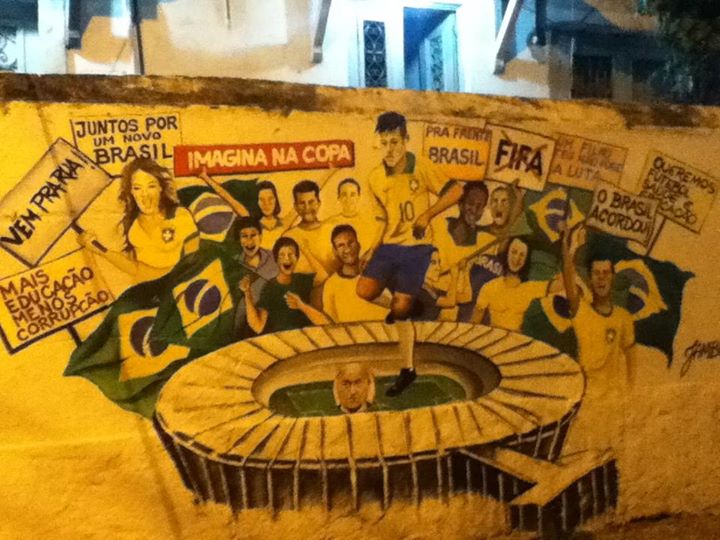
by Andrew Kennis, Americas Program
RIO DE JANEIRO — While smoking his tobacco pipe in front of his small cinder-block home toward the top of his native Vidigal, a sprawling favela overlooking some of Rio de Janeiro’s most luxurious neighborhoods, Jamil Jorge offered his thoughts on Brazil hosting the World Cup in the midst of the tournament: "The World Cup only benefits people and institutions with money, not people like me."
Jamil had just finished meditating during a breezy ocean-side night at one of the many stunning lookouts that Vidigal offers. The public viewpoint lies at the foot of one of the many homes of none other than David Beckham—reflective of the uneven and volatile development Brazil has undergone over the last decade alone. Recent years have brought tens of millions into the middle class but left plenty of others behind, as suggested by a low 85th ranking in the United Nations Human Development index.
When asked about the FIFA (International Federation of Football Association, in English) and its motives in relation to the Cup, Jorge grinned and made the universal gesture for money with his hands. "Someone is profiting from this World Cup, but it isn’t me… or our favela."















Recent Updates
1 day 11 hours ago
1 day 11 hours ago
1 day 11 hours ago
4 days 14 hours ago
1 week 2 days ago
1 week 2 days ago
1 week 3 days ago
1 week 3 days ago
1 week 4 days ago
1 week 4 days ago